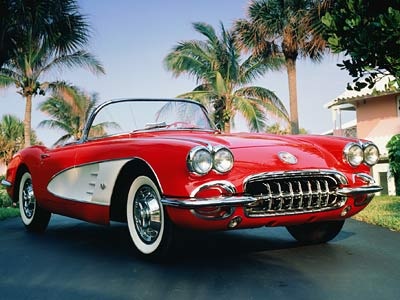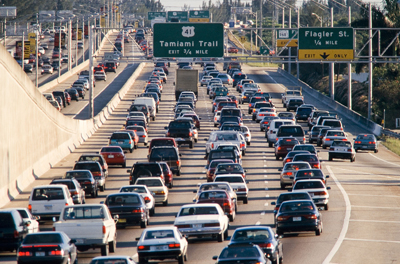Is America divorcing the automobile?
 America’s once fiery love affair with the automobile now looks more like the autumn of a long marriage. What is this less than exciting phase of mutual dependency revealing about the future of cars in America?
America’s once fiery love affair with the automobile now looks more like the autumn of a long marriage. What is this less than exciting phase of mutual dependency revealing about the future of cars in America?“Nationally, the number of miles driven by people younger than 35 dropped by 23 percent between 2001 and 2009, according to research by the think tank Frontier Group,” writes Ashley Halsey III of the Washington Post. “More than a quarter of those in that age group don’t own a driver’s license.”
The striking drop in car owners is attributed to a number of factors. For one, the economy hasn’t exactly welcomed young people into the arms of a grandiose America. In the current financial and political climate, cruising down Main Street in your convertible would likely invite rolling eyes, not weak knees.
Halsey notes, “In rural America, a license and an automobile may remain a necessity for young people. But so does fuel economy, so the car of choice may be a four-cylinder that gets 32 miles per gallon rather than the muscle car of yore.”
Gas prices have doubled since 2001. Perhaps that’s why 75 percent of the people who now buy the iconic Chevrolet Corvette are 45 years-of-age or older.
 According to the study, another reason for the drop is that roads aren’t associated with freedom like they used to be. The open road is truly more of a myth than a reality now. In fact, SmartPlanet recently shared a study of the happiest cities in the world. The number one cause of anxiety and frustration for urban dwellers? Traffic and parking.
According to the study, another reason for the drop is that roads aren’t associated with freedom like they used to be. The open road is truly more of a myth than a reality now. In fact, SmartPlanet recently shared a study of the happiest cities in the world. The number one cause of anxiety and frustration for urban dwellers? Traffic and parking.Finally, there are now a myriad of alternative travel options. Zipcar and Car2Go, in Washington an app that allows drivers to post their travel plans to fill empty seats with passengers, and the growing number of (successful and not-so-successful) bike sharing initiatives all come to mind.
Also, public transportation offers an essential perk: the ability to stay virtually connected without fumbling unsafely while driving or getting ticketed by the police.
“When you begin to look at the vehicle as more utilitarian you begin to look at alternatives, because it’s only a method of transportation,” Timothy K. Gilbert, who chairs the automotive marketing department at Northwood University in Florida said. “The way people look at the automobile reflects maybe not uncertainty as much as ambivalence.”
And isn’t ambivalence a great description of a long marriage? I’m no expert, but it looks like a love hate sort of thing to me. With all the ridesharing programs spreading across the nation, is America embracing an open relationship model?
You can return to the main Market News page, or press the Back button on your browser.

